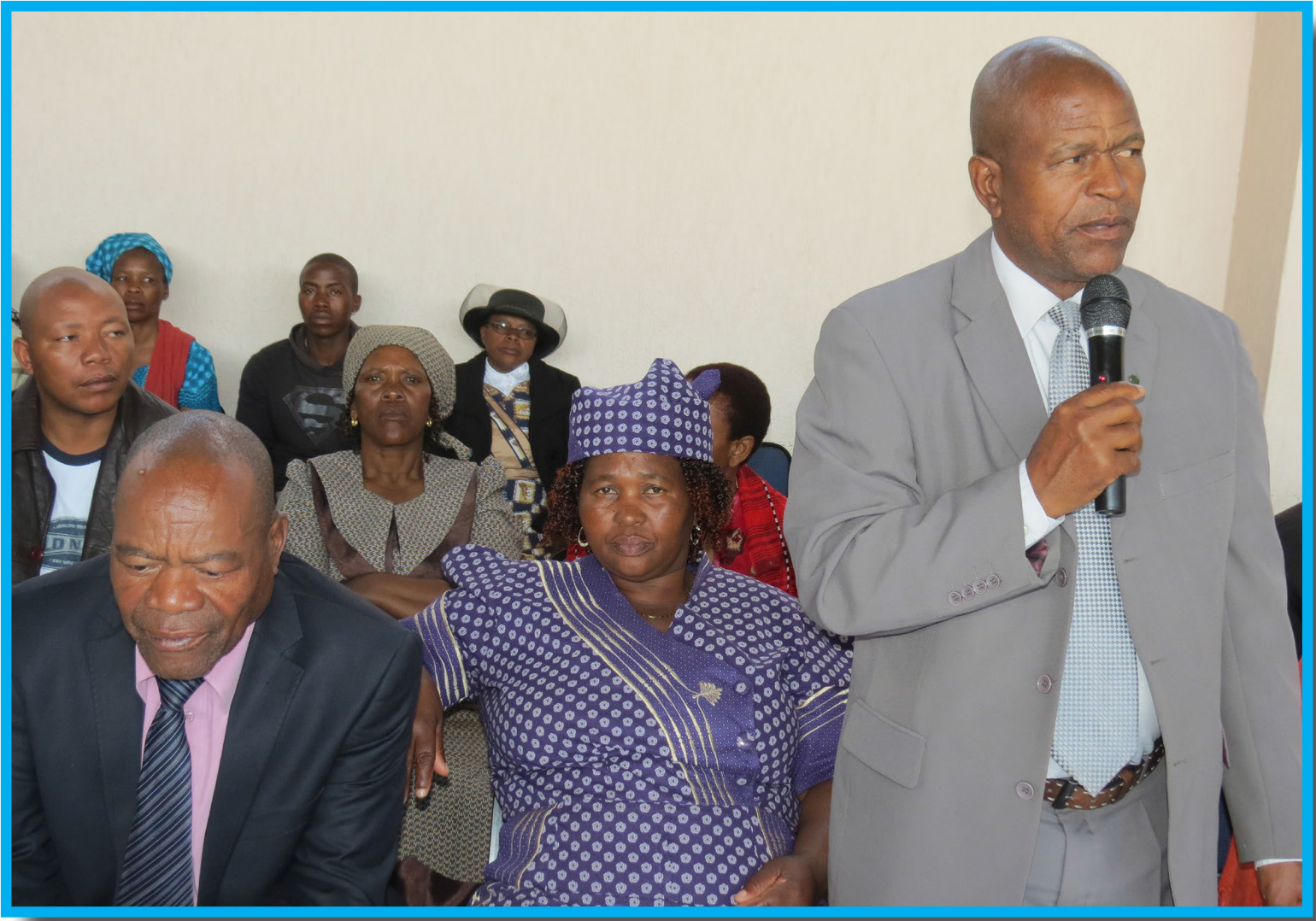Public participation and engagement in the national budgetary
processes is essential for development, the Deputy Minister of
Finance, Matšepo Ramakoae said, during the National Community
Parliament held at AME Hall, Maseru from the 6th – 8th October
2014. The Community Parliament is an output of (i) Deepening
Decentralization of Non-State Actors Project and (ii) Public
Participation and Non-State Actors Capacity Building for Development
Project which are both funded by the European Union. The former is
a three-year programme which seeks to Build the Capacity of Local
Non State Actors for Constructive Engagement in Local Government
Agenda while the latter is also a three-year programme which seeks
to enhance participation of NSAs in contributing to poverty reduction
at community level.
Addressing over 300 participants from the ten districts of the country,
Mrs Ramakoae said the Community Parliament, currently on its seventh year,
is gaining momentum. Furthermore, she reiterated that it should be used as
a platform to inform the national budget allocations based on essential needs
from respective community councils. “Civil Society Organisations should continue
to engage ordinary citizens to enhance public participation,” she said, adding
that the route taken by LCN and its partner, Development for Peace Education,
will enhance public participation on governance and budgetary processes.
 |
|
Deputy Minister of Finance, Matšepo Ramakoae addresses Community Parliament at AME in Maseru |
The minister noted the needs disconnection from annual budget allocations and
the needs of the communities, hence this kind of forum would help the government
to track and ensure the budget is used per planned activities.
“In order to ensure full public participation, finance jargon must be translated
into simple Sesotho terms for better appreciation of our people,” she said.
The Lesotho Council of NGOs Executive Director, Mr Seabata Motsamai concurred with
the views of Deputy Minister of Finance by indicating that Civil Society has been
working tirelessly to bring the parliament to the people and to enhance public
participation in national budgetary processes. “Participation for ordinary citizens
and engagement are positive signs for development, and this can be achieved if there
are good intentions both from the government and the civil society,” he said.
He noted that collaboration between government and CSO, coupled with the national
budget that is responsive to HIV and Aids, poverty alleviation, instability, poor
agricultural production are critical for development.
He said Civil Society has no intentions to take-over the government; contest the
elections, but to ensure remedial interventions to the daunting challenges facing
the country are addressed by the government and policy makers.
“Even if we can be given names, we only strive for the betterment of the lives of ordinary citizens, and for Lesotho to be a stable democracy that can attract foreign investment,” Mr Motsamai stated.
Mr Motsamai said as Lesotho continues to be haunted by political challenges; dialogue in all honesty can help the country resolve its own political challenges.
 |
|
Participants from various Community Councils during the 7th Community Parliament |
The Foreign Affairs Minister, Mr Mohlabi Tsekoa shared the sentiment of the previous speakers by highlighting that Community parliament is an important forum where government and ordinary citizens sit to plan the needs of the people, thus urged the government to seriously consider the forum during budgetary processes.
He said patriotism is important when discussing national issues. “Respect and love for the country, is important. We only have one country, therefore we should have passion and hope,” he said.
Community Parliament is a platform where ordinary citizenry address senior government officials from different ministries about their needs in communities. It helps communities understand how the National Parliament works and how it allocates and appropriates, and serves as a platform where ministries provide an update on what they are doing to address challenges facing the nation.
The National Commmunity Parliament was preceded by the preliminary consultations, which produced the question/needs from communities, followed by a question presentation ceremony to representatives of the relevant ministries.
The ministries of Public Works and Transport, Education and Training, Water Affairs, Energy and Meteorology, Local government, Chieftainship and Parliamentary Affair, Agriculture and Food Security, Communication, Science and Technology and Ministry of Health responded to the questions posed by communities.
 |
|
Member of the Manka Community Council poses a question during the Community Parliament at AME in Maseru |
Even though the Ministry of Development Planning and the Ministry of Police were invited, they unfortunately were not present at event.
However, the event was graced with the presence of Ministers, Members of parliament and senior government officials, community councillors, villages chiefs, media and members of civil society.
|